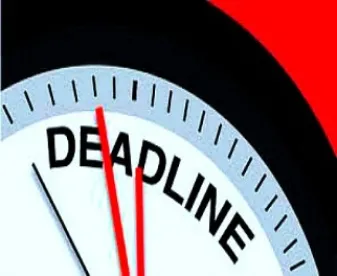In a final written decision invalidating claims, the Patent Trial and Appeal Board (PTAB) held that it was proper to issue a modification of a timely pre-SAS institution order to include claims previously not included in the institution order, even where the modification order issued after the three-month statutory deadline to institute following the patent owner’s preliminary response. TomTom, Inc. v. Blackbird Tech, LLC, Case No. IPR2017-02023 at Dkt. No. 25 (PTAB March 11, 2019) (Stephens, APJ).
Prior to the Supreme Court of the United States decision in SAS, the PTAB instituted inter partes review (IPR) on some of the challenged claims of a patent subject to a petition. The institution order was issued within the three-month deadline to institute following the patent owner’s preliminary response. Following the decision in SAS, which eliminated the PTAB’s practice of partially instituting claims and grounds raised in petitions (IP Update, Vol. 21, No. 5), the PTAB amended its institution decision to add additional claims, as well as an additional ground of challenge from the petition. The patent owner argued that (1) the PTAB’s modification order “improperly attempts to address, without the statutorily-mandated rulemaking, how to govern a proceeding covering all challenged claims and all asserted grounds,” and (2) “the Board lacks authority to modify an unlawful institution decision once the statutory timeframe for issuing an institution decision has expired.”
The PTAB rejected the patent owner’s argument that modifying the institution decision constitutes improper rulemaking relating to 35 USC § 316 under the Administrative Procedures Act. The PTAB explained that it was not precluded under 37 CFR § 42.108(a) or 42.108(b) from modifying the institution order to include challenged claims that the PTAB initially determined were not reasonably likely to be determined invalid. The PTAB explained that while 37 CFR § 42.108(c) precludes institution unless the PTAB determines that a petition demonstrates a “reasonable likelihood that at least one of the claims challenged in the petition is unpatentable,” it does not prohibit institution on other challenged claims so long as petitioner has shown a likelihood of unpatentability of at least one claim.
The PTAB also dismissed the patent owner’s contention that the PTAB’s partial-institution decision was final, explaining that notwithstanding SAS making partial institutions improper, and despite the absence of new rules mandating institution on an asserted ground of unpatentability, even where petitioner does not demonstrate a reasonable likelihood of success with respect to at least one claim within a grounds for challenge, the PTAB is not prohibited from instituting on all claims as long as it finds that at least one claim is reasonably likely to be determined invalid on at least one asserted ground.
The PTAB rejected the patent owner’s assertion that modifying the institution order effectively reset the date of institution to a date beyond the three-month deadline following the preliminary patent owner response. The PTAB explained that the patent owner was mischaracterizing the appropriate SAS inquiry, which is simply a binary choice for the director to institute or not within the three-month timeline. The PTAB noted that the Supreme Court in SAS did not find the institution decision null and void, but instead remanded the case for review of all challenged claims. According to the PTAB, SAS thus “did not preclude a scope correction of an already instituted case . . . including corrections made after the due date for the PTAB to decide whether to institute review.” Accordingly, since IPR was timely instituted, the decision to later modify that decision to comport with SAS did not constitute an untimely institution.
Practice Note: For cases having pre-SAS institution decisions, patent owners should be aware that the institution decision may be modified after the statutory deadline to include previously non-instituted claims and grounds. As for petitioners, a failure to request a rehearing of a partially instituted decision does not make final the non-instituted grounds and claims under SAS.
Paul St. Marie, Jr., is a law clerk in the law firm of McDermott Will & Emery LLP and is based in Washington, DC. He focuses on intellectual property matters.



 />i
/>i
